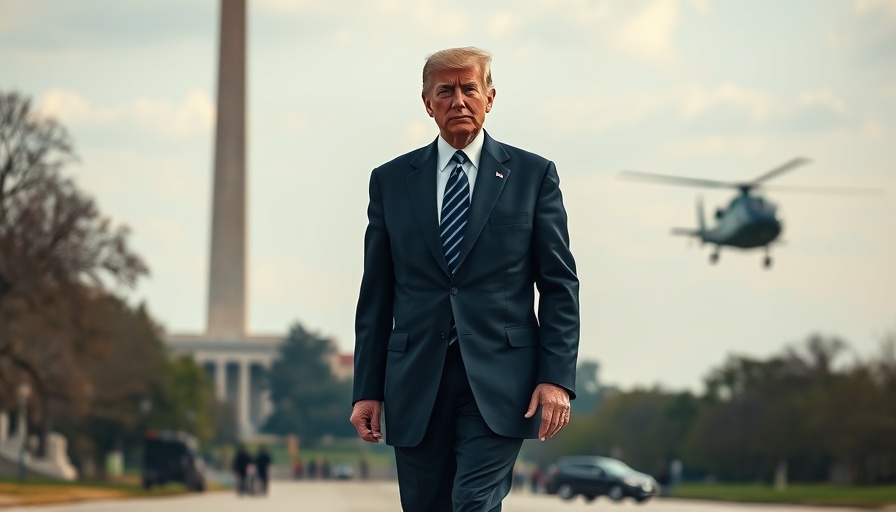
Trump's Stance on NATO and Russia: A Bold Move for Sanctions
U.S. President Donald Trump has recently intensified his rhetoric regarding NATO's role in pressuring Russia to cease its aggression in Ukraine. Speaking on September 13, 2025, Trump declared that he is prepared to impose 'major sanctions' on Russia, contingent upon NATO countries doing the same. His statement comes as he expresses frustration over NATO's commitment and emphasizes the need for unified efforts to apply economic pressure on Moscow.
The Economic Implications of NATO Sanctions
In his address, Trump criticized certain NATO nations for continuing to purchase Russian oil, describing their actions as a shock. By proposing significant sanctions that could reduce Russian revenue, he aims to disrupt the financial capabilities fueling the ongoing war. The urgency of his message aligns with broader global economic strategies aimed at mitigating conflict-related impacts on taxpayer resources and prioritizing national security interests.
Tariffs on China as a Lever Against Russia
Further complicating the economic landscape, Trump has called for imposing hefty tariffs, ranging from 50% to 100%, on China, a nation he accuses of holding undue influence over Russia. The anticipated tariffs, he believes, would not only weaken China’s grip but also pressure Russia economically. Treasury Secretary Scott Bessent supports this initiative, underscoring the combined impact tariffs and sanctions can have on reducing funding for Putin’s military ambitions.
Is There a Peace Deal on The Horizon?
Despite his tough talk about sanctions, Trump's hesitation to act decisively raises questions about his strategy. Analysts suggest that his reluctance may stem from a desire to facilitate a peace agreement between Ukraine and Russia rather than further escalate tensions. As taxpayers, understanding these geopolitical dynamics becomes essential to grasping how overseas conflicts may indirectly affect domestic financial obligations and tax strategies.
Conclusion: Navigating the Complexities of Taxpayer Interests
As these international financial decisions unfold, they may significantly influence domestic economic policies, including your tax planning. Keep abreast of these developments which may shape future deductions and financial strategies that resonate with effective tax planning aimed at lowering your taxes. From small business tax deductions to savvy strategic tax deductions, being informed empowers you to make better financial decisions.
 Add Row
Add Row  Add
Add 




Write A Comment